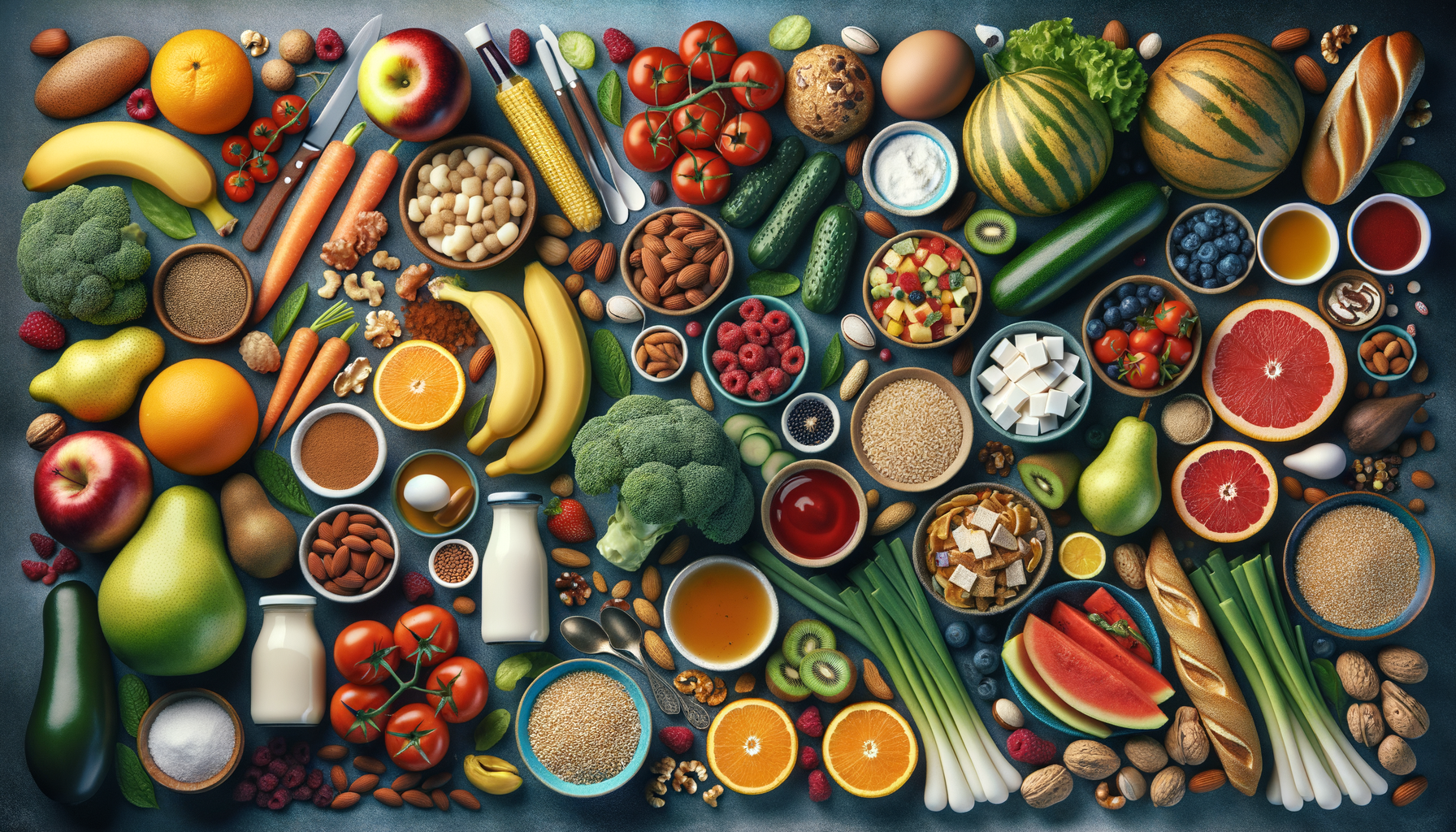
Common Foods That May Impact Blood Sugar in People with Diabetes
Introduction: Understanding the Importance of Food Choices in Diabetes Management
For individuals managing diabetes, understanding how different foods impact blood sugar levels is crucial. The choices made at each meal can significantly influence not only immediate blood glucose levels but also long-term health outcomes. This article delves into common foods that can affect blood sugar, providing insights into how to make informed dietary choices.
Carbohydrates: The Primary Blood Sugar Influencers
Carbohydrates are the body’s main source of energy, but they have a direct impact on blood sugar levels. When consumed, carbohydrates are broken down into glucose, which enters the bloodstream. This process can cause a rapid increase in blood sugar, especially with refined carbohydrates such as white bread, rice, and sugary snacks.
It’s essential to differentiate between types of carbohydrates. Complex carbohydrates found in whole grains, legumes, and vegetables are digested more slowly, leading to a gradual increase in blood sugar rather than a spike. Incorporating these into meals can help maintain stable blood sugar levels.
Key points to consider when choosing carbohydrates:
- Opt for whole grains like quinoa, brown rice, and oats.
- Include plenty of fiber-rich vegetables.
- Avoid processed and refined sugars.
The Role of Proteins and Fats in Blood Sugar Regulation
Proteins and fats play a vital role in diabetes management by providing energy without causing immediate spikes in blood sugar. Proteins, found in lean meats, fish, eggs, and plant-based sources like beans and lentils, help to slow down the absorption of carbohydrates.
Fats, especially healthy fats from sources like avocados, nuts, seeds, and olive oil, can also contribute to a balanced diet. They help to increase satiety, reducing the likelihood of overeating and subsequent blood sugar fluctuations.
When incorporating proteins and fats into a diabetic-friendly diet, it’s important to:
- Choose lean protein sources to reduce saturated fat intake.
- Incorporate healthy fats in moderation.
- Balance meals with a mix of macronutrients for optimal blood sugar control.
Fruits: Nature’s Sweet Treats and Their Impact
Fruits are a natural source of vitamins, minerals, and fiber, but they also contain natural sugars that can affect blood sugar levels. While fruits are a healthier choice compared to sugary snacks, it’s essential to be mindful of portion sizes and types of fruits consumed.
Some fruits, like berries, apples, and pears, have a lower glycemic index, meaning they have a less pronounced effect on blood sugar. In contrast, tropical fruits like mangoes and pineapples can cause more significant increases.
Tips for enjoying fruits while managing diabetes include:
- Pair fruits with a source of protein or fat to slow sugar absorption.
- Choose whole fruits over fruit juices to benefit from fiber content.
- Be mindful of portion sizes to avoid excessive sugar intake.
Dairy and Alternatives: Navigating Choices for Blood Sugar Stability
Dairy products can be a part of a diabetes-friendly diet, offering calcium, protein, and other essential nutrients. However, some dairy products, particularly flavored or sweetened ones, can contain added sugars that impact blood sugar levels.
Choosing unsweetened and low-fat dairy options can help maintain stable blood sugar. For those who are lactose intolerant or prefer plant-based alternatives, options like almond milk, soy milk, and coconut yogurt can be suitable, provided they are unsweetened.
Considerations when selecting dairy and alternatives:
- Opt for unsweetened versions to reduce sugar intake.
- Incorporate dairy as part of a balanced meal with proteins and fats.
- Be cautious with portion sizes, especially with higher-fat options.
Conclusion: Making Informed Food Choices for Better Diabetes Management
Managing diabetes effectively requires a comprehensive understanding of how different foods impact blood sugar levels. By prioritizing complex carbohydrates, lean proteins, healthy fats, and mindful fruit and dairy choices, individuals can achieve better blood sugar control and overall health. It’s about balance and making informed decisions that align with personal health goals.